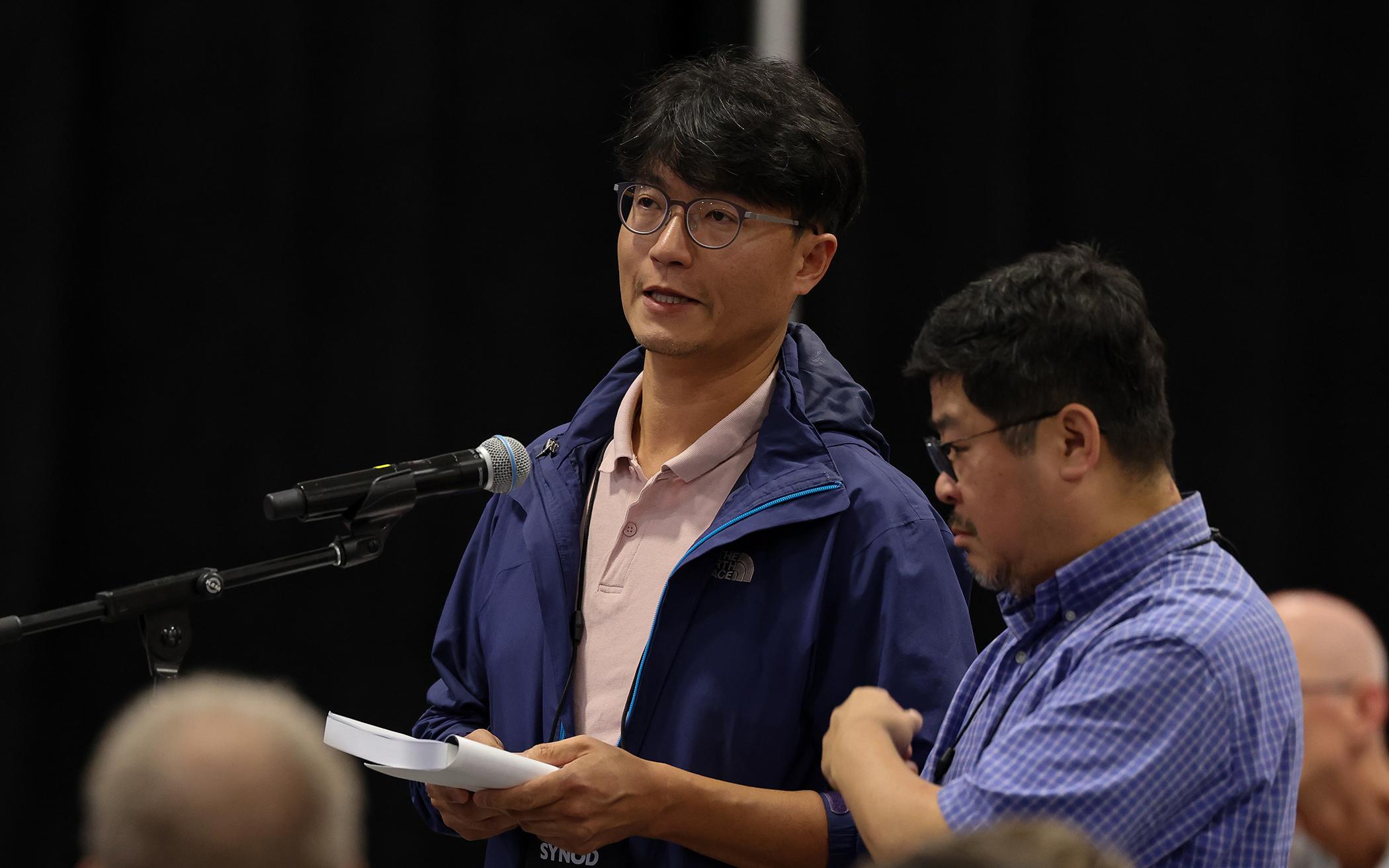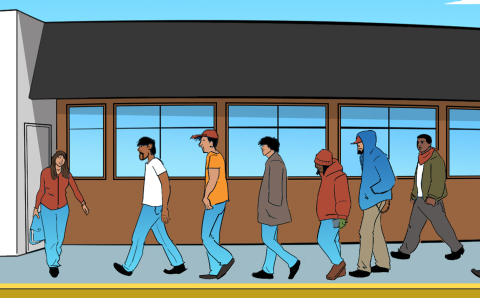Synod 2025 had a request “to prioritize church planting within the denominational budget”—a matter it considered at length. Without being able to make direct budgetary decisions, the assembly affirmed that church planting is a key strategy in building the health and vitality of the denomination and instructed the Office of General Secretary to coordinate the Christian Reformed Church agencies and regional groups of churches to develop a vision, plan, strategy, and financial proposal for church planting for the CRCNA and bring it to the next synod.
Resonate Global Mission, the agency through which church planting efforts are supported denominationally, announced earlier this year that it had to cut $4 million from its next year’s budget, affecting every part of its ministry, including direct grants to church planters.
The delegates were encouraged to connect with Resonate in order to share ideas, find out how they can be a part of church planting and learn more about how it impacts the Christian Reformed Church.
Christian Sebastia, Classis Rocky Mountain, who is a church planter, affirmed the idea that the whole church is responsible for the work of starting and supporting new churches. “We understand that it is a process of churches planting churches and not agencies planting churches,” Sebastia said.
Scott VanderPloeg, Classis Southeast U.S., is from the classis who made the prioritization request. Noting some numbers reflecting the decline of the church over the past three decades, he said membership numbers “have fallen below our projection for 2036 already.” He urged the action steps that synod eventually adopted.
Ruben Aguilar, Classis California South, who came to the Christian Reformed Church through a church plant, said, “Coming to the CRC was such a blessing to my entire family,” noting, “I feel truly blessed to see Latinos and other ethnic groups are being embraced.”
Randy Wester, Classis Rocky Mountain, where Sebastia is planting churches, shared his experience: “My church has been the parent church of nine church plants, the majority if not all receive support through Resonate.” He encouraged continued support for the agency.
Peter Oh, Classis B.C. North-West, a Korean pastor who spoke with the help of an interpreter, shared the impact of the loss of direct grants. “Most of our church members are from non-believing backgrounds. I was lost as to how to communicate this (the loss of new funding) to our brand-new nonbelievers.” Oh said he wanted delegates to know that lack of funding puts outreach to his community at risk and echoed another delegate’s hope that synod’s affirmation of church planting not be “just be empty words.”
Despite the current financial realities, VanderPloeg encouraged the body, “When it comes to church planting, we don’t lack anything. We can do it. We have the gospel, and the Christian Reformed Church has a robust articulation of faith that our secular world needs.” Continuing, VanderPloeg shared his personal love of the gospel: “I was a broken person, and there were CRC pastors that came into my life and shared the news of Jesus. I’m motivated. I believe that the church is the hope of the dying world.”
Receiving synod’s instruction, general secretary Zachary King, assured the assembly, “It's my intention to support the renewal and rebuilding of our denomination,” exhorting the delegates that “this is a team effort.”
“None of us are masters in this system,” King said. “The system has a master, and that is the Lord Jesus.”
Synod 2025, the annual general assembly of the Christian Reformed Church in North America, is meeting June 13-19 on the campus of Redeemer University in Ancaster, Ont. Find daily coverage from The Banner at TheBanner.org/synod. Visit crcna.org/synod for the agenda, advisory reports, recordings of plenary sessions, and to subscribe to the daily Synod News email.
About the Author
Isabelle Brown is a writer from Brampton, Ontario and a student at Redeemer University, where she is a reporter for The Crown. Her non-writing interests include painting and sketching.









